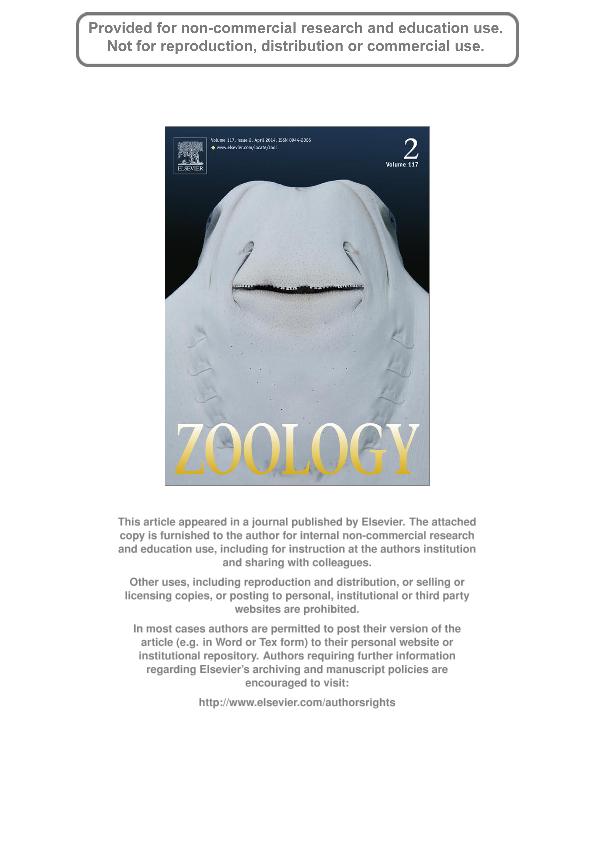Artículo
Carryover effects of predation risk on postembryonic life-history stages in a freshwater shrimp
Ituarte, Romina Belen ; Vázquez, María Guadalupe
; Vázquez, María Guadalupe ; Gonzalez Sagrario, Maria de Los Angeles
; Gonzalez Sagrario, Maria de Los Angeles ; Spivak, Eduardo Daniel
; Spivak, Eduardo Daniel
 ; Vázquez, María Guadalupe
; Vázquez, María Guadalupe ; Gonzalez Sagrario, Maria de Los Angeles
; Gonzalez Sagrario, Maria de Los Angeles ; Spivak, Eduardo Daniel
; Spivak, Eduardo Daniel
Fecha de publicación:
03/2014
Editorial:
Elsevier Gmbh
Revista:
Zoology
ISSN:
0944-2006
Idioma:
Inglés
Tipo de recurso:
Artículo publicado
Clasificación temática:
Resumen
For organisms with complex life histories it is well known that risk experienced early in life, as embryos or larvae, may have effects throughout the life cycle. Although carryover effects have been well documented in invertebrates with different levels of parental care, there are few examples of predator-induced responses in externally brooded embryos. Here, we studied the effects of nonlethal predation risk throughout the embryonic development of newly spawned eggs carried by female shrimp on the timing of egg hatching, hatchling morphology, larval development and juvenile morphology. We also determined maternal body mass at the end of the embryonic period. Exposure to predation risk cues during embryonic development led to larger larvae which also had longer rostra but reached the juvenile stage sooner, at a smaller size and with shorter rostra. There was no difference in hatching timing, but changes in larval morphology and developmental timing showed that the embryos had perceived waterborne substances indicative of predation risk. In addition to carryover effects on larval and juvenile stages, predation threat provoked a decrease of body mass in mothers exposed to predator cues while brooding. Our results suggest that risk-exposed embryos were able to recognize the same infochemicals as their mothers, manifesting a response in the free-living larval stage. Thus, future studies assessing anti-predator phenotypes should include embryonic development, which seems to determine the morphology and developmental time of subsequent life-history stages according to perceived environmental conditions.
Archivos asociados
Licencia
Identificadores
Colecciones
Articulos(IIMYC)
Articulos de INSTITUTO DE INVESTIGACIONES MARINAS Y COSTERAS
Articulos de INSTITUTO DE INVESTIGACIONES MARINAS Y COSTERAS
Citación
Ituarte, Romina Belen; Vázquez, María Guadalupe; Gonzalez Sagrario, Maria de Los Angeles; Spivak, Eduardo Daniel; Carryover effects of predation risk on postembryonic life-history stages in a freshwater shrimp; Elsevier Gmbh; Zoology; 117; 2; 3-2014; 139-145
Compartir
Altmétricas



